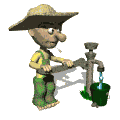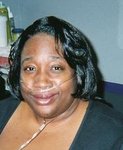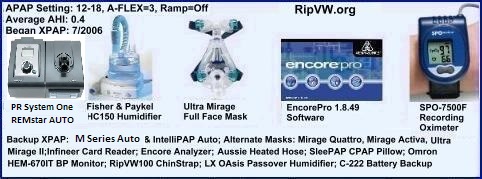distilled water vs tap water?
Re: distilled water vs tap water?
For those of us with a S9 with humidifier. 36800 H5i water tub (cleanable)
Dishwasher Safe Water Chamber for S9 and H5i Heated Humidifier
Manufactured by Resmed.
$36.95
Item #36800:
Dishwasher Safe Water Chamber for S9 and H5i Heated Humidifier
Manufactured by Resmed.
$36.95
Item #36800:
_________________
| Mask: AirFit™ N20 Nasal CPAP Mask with Headgear |
| Humidifier: S9™ Series H5i™ Heated Humidifier with Climate Control |
| Additional Comments: ResScan 3.11; The pink air is the same as the gray air. |
ResMed S9 Auto set/Heated humidifier/AirFit N30i
diagnosed and began CPAP treatment 2003.
diagnosed and began CPAP treatment 2003.
- Slartybartfast
- Posts: 1633
- Joined: Wed Sep 01, 2010 12:34 pm
Re: distilled water vs tap water?
Years ago I came across a laboratory water distiller. Though the new pharmaceutical lab I was helping set up had piped-in deionized water, we never trusted it for the work we were doing. Sometimes a filter would clog, or burst and the whole system would have to be shut down, passivated, sterilized, certified, validated, stamped, sealed, tested, tested again, then re-tested, blessed by the cleric of your choice, etc. before we were allowed to use it again. So I took out of mothballs a wonderful glass distiller in order to get us away from all that. 1970s technology at its best. It was about the size of a 5-gallon water bottle with two quartz rods that went into it. Made from borosilicate glass. Not that cheap soda lime stuff. Ran off 3-phase 208. Once I got it assembled, the electrician wired it in and hung it on the wall, flipped the switch and the rods began to glow, water began to bubble and a little trickle of water out the coiled glass condenser turned into a torrent. What a wonderful apparatus! It was hypnotic watching it work. Sort of like a lava lamp on fast-forward. The company's electric bill was said to be over a million dollars a month at the time, so nobody counted the cost.
The electrician had all the test equipment and we figured out the cost of producing the purified water and it was about $0.10/gallon using industrial electrical rates. That was about 15 years ago. If you want to look it up, it takes 540kcal of heat energy to vaporize 1 kg of water. Or 1964 kcal to vaporize one gallon of water. That works out to 2.3 kWh of electricity. At 0.12/kWh, that's about $0.28/gallon just for electricity. And that assumes no losses. So figure maybe $0.35/gallon real-world cost. So deionized water is lots cheaper to produce than distilled water. I know you really wanted to know that.
So if you absolutely must have demineralized water (demineralized water = distilled water = deionized water), the jugs at the grocery store are the cheapest. Better yet, take your empty jug to the store and refill them at the dispenser and avoid having to recycle them. You DO recycle, don't you?
However as I said earlier, there is absolutely no compelling reason to insist on using anything other than tap water.
The electrician had all the test equipment and we figured out the cost of producing the purified water and it was about $0.10/gallon using industrial electrical rates. That was about 15 years ago. If you want to look it up, it takes 540kcal of heat energy to vaporize 1 kg of water. Or 1964 kcal to vaporize one gallon of water. That works out to 2.3 kWh of electricity. At 0.12/kWh, that's about $0.28/gallon just for electricity. And that assumes no losses. So figure maybe $0.35/gallon real-world cost. So deionized water is lots cheaper to produce than distilled water. I know you really wanted to know that.
So if you absolutely must have demineralized water (demineralized water = distilled water = deionized water), the jugs at the grocery store are the cheapest. Better yet, take your empty jug to the store and refill them at the dispenser and avoid having to recycle them. You DO recycle, don't you?
However as I said earlier, there is absolutely no compelling reason to insist on using anything other than tap water.
Re: distilled water vs tap water?
Make that "health reason" and I agree. In areas where tap water is "hard", the potential for damage to the chamber can be "compelling". That is why many CPAP manufacturers recommend distilled.Slartybartfast wrote:However as I said earlier, there is absolutely no compelling reason to insist on using anything other than tap water.
The OSA patient died quietly in his sleep.
Unlike his passengers who died screaming as the car went over the cliff...
Unlike his passengers who died screaming as the car went over the cliff...
Re: distilled water vs tap water?
since i cant use Tap Water for my Oxygen, i have a feeling i cant use it for my Humidifier for my CPap.
i only use Distilled Water. Tap Water burns and makes my nose bleed.
Tap Water breaks down/destroys your equipment very quickly and very easily
i order 3 cases of Distilled water every four months
i only use Distilled Water. Tap Water burns and makes my nose bleed.
Tap Water breaks down/destroys your equipment very quickly and very easily
i order 3 cases of Distilled water every four months
Dont Worry About My Machine, My Equipment, And What I Use, Just Know That I Have Obstructive Sleep Apnea, And I Have CPap Equipment, And Thats All You Need To Know, Now Call Me On This
- Slartybartfast
- Posts: 1633
- Joined: Wed Sep 01, 2010 12:34 pm
Re: distilled water vs tap water?
Agreed. However a little boiler scale doesn't bother me. That can be taken care of with vinegar. Our water has 700 ppm Total Dissolved Solids last time I checked. A weekly rinse of the reservoir is all it takes to keep it clean. Trouble comes in when someone just keeps topping off the reservoir rather than dumping out the water prior to refilling it. It's the insistence of many people that there is some health threat to using tap water that bothers me. I don't think that was the manufacturers' intent when they recommended demineralized water. And the therapy is difficult enough to put up with. Why make it even more so?LinkC wrote:Make that "health reason" and I agree. In areas where tap water is "hard", the potential for damage to the chamber can be "compelling". That is why many CPAP manufacturers recommend distilled.Slartybartfast wrote:However as I said earlier, there is absolutely no compelling reason to insist on using anything other than tap water.
And as for oxygen humidifiers, no argument here. Use demeralized water in your O2 humidifier. All my concerns pertain to CPAP humidifiers.
Re: distilled water vs tap water?
When traveling, I just use tap water, but I don't use any heat (use the humidifier in passive mode). The heat mode probably results in more mineral deposits, I believe.


-
HoseCrusher
- Posts: 2744
- Joined: Tue Oct 12, 2010 6:42 pm
Re: distilled water vs tap water?
Slartybartfast, I agree with your comments on evaporation and distillation. When Dr. Raymond submitted the article in question, it appears that he was also aware of how these processes work. In fact, he included this reference...
http://chestjournal.chestpubs.org/conte ... 8.full.pdf
The question is...
Why did he even bother to do the article if it is an impossible form of contamination?
He could have reported on the illness and just, in a foot note, mentioned that she happen to use CPAP with tap water, that the tap water was contaminated, but since endotoxins can't be transmitted to the air via evaporation, there would have to be another source of infection.
I wonder if Dr. Raymond would respond to an email on this...
I just sent him an email and will let you know if he responds.
http://chestjournal.chestpubs.org/conte ... 8.full.pdf
The question is...
Why did he even bother to do the article if it is an impossible form of contamination?
He could have reported on the illness and just, in a foot note, mentioned that she happen to use CPAP with tap water, that the tap water was contaminated, but since endotoxins can't be transmitted to the air via evaporation, there would have to be another source of infection.
I wonder if Dr. Raymond would respond to an email on this...
I just sent him an email and will let you know if he responds.
_________________
| Mask: Brevida™ Nasal Pillow CPAP Mask with Headgear |
| Additional Comments: Machine is an AirSense 10 AutoSet For Her with Heated Humidifier. |
SpO2 96+% and holding...
Re: distilled water vs tap water?
In a roundabout way, yes. The heat results in more H2O being evaporated in a given time. That means more deposits. ALL of the dissolved solids are left in the tank whether heated or not. The more water you have to add, the more deposits you'll get. The heat merely accelerates that process.RipVW wrote:When traveling, I just use tap water, but I don't use any heat (use the humidifier in passive mode). The heat mode probably results in more mineral deposits, I believe.
The OSA patient died quietly in his sleep.
Unlike his passengers who died screaming as the car went over the cliff...
Unlike his passengers who died screaming as the car went over the cliff...
Re: distilled water vs tap water?
ResMed H4i User Guide (p. 3) wrote: Fill with fresh, clean water up the maximum water level mark. [sic]
Believe it or not.ResMed H4i User Guide FAQ (p. 7) wrote: Q: Do I have to use distilled water in the water chamber?
A: Using distilled water will maximize the life of the chamber and reduce mineral deposits.
_________________
| Machine: DreamStation BiPAP® Auto Machine |
| Mask: DreamWear Nasal CPAP Mask with Headgear |
jeff
- Slartybartfast
- Posts: 1633
- Joined: Wed Sep 01, 2010 12:34 pm
Re: distilled water vs tap water?
Researchers live for solving mysteries. That's the kick. Find something that doesn't quite make sense and you realize you're treading on new ground. "Boldly going where no (one) has gone before," you might say. That's why Dr. Raymond's article was noteworthy, and why it was published. If he were merely reporting a routine case of a pulmonary infection, it would be ho-hum.HoseCrusher wrote:Slartybartfast, I agree with your comments on evaporation and distillation. When Dr. Raymond submitted the article in question, it appears that he was also aware of how these processes work. In fact, he included this reference...
http://chestjournal.chestpubs.org/conte ... 8.full.pdf
The question is...
Why did he even bother to do the article if it is an impossible form of contamination?
He could have reported on the illness and just, in a foot note, mentioned that she happen to use CPAP with tap water, that the tap water was contaminated, but since endotoxins can't be transmitted to the air via evaporation, there would have to be another source of infection.
I wonder if Dr. Raymond would respond to an email on this...
I just sent him an email and will let you know if he responds.
It's the dots that don't line up that make it noteworthy. One of the criteria of a new discovery that makes it patentable is, was it unexpected? **
I read the articles you referenced. The Wenzel article is how I understand the situation in a passover-type CPAP humidifier. No surprise there. And the one you referenced re: the humidifier in theprinting factory is not surprising because that type of humidifier creates an aerosol and is known to transmit pathogens, just like the cooling towers atop the building at the Legionaires' convention in 1976 did. But that is not the type of humidifier that is used on CPAP equpment. The Wenzel article states something like that in their last paragraph.
*I just received notification that one of the drugs that I collaborated on the development of had an unexpected side effect. That unexpected discovery was granted a patent. And I was called to the 7th floor of the corporate towers where the lawyers reside to sign my rights over and collect $1.00 the company must pay us for those rights. I spent the dollar in the vending machine in the basement before heading back to the lab.
Re: distilled water vs tap water?
>>the cost to run them is over $1 per gallon of output.<<jweeks wrote:Hi,xerort wrote:Another option would be to look up how to make your own distilled water. Thinking about it, it is probably a fairly simple process.
Simple, yes, but costly. There was a thread here about 18 months ago about distilled water machines. I'll admit that it is a bit of a hassle to have to buy and stock distilled water at home, which made me look into the machines. It turns out that they are over $100, and the cost to run them is over $1 per gallon of output. Given that they have a limited lifetime, that makes them at least 3 times the cost of the 69 cent per gallon distilled water at Wal-Mart. I go to Wal-Mart once a month anyway, so it is no extra time or miles for me to buy the gallon jugs.
-john-
Hmmmm . . . I think you are over-stating the operational costs. There is an article circa 1992 that describes the distillation process and costs -- http://www.ag.ndsu.edu/pubs/h2oqual/watsys/ae1032w.htm. Many of their calculations are based on a KHW price of $0.10. In my area, the KWH price is lower, at $0.07 (approximately) - and it takes about 1.5 KWH to distill a gallon of water. The electricity costs then, are about $0.10 per gallon. Add the price of the water which is $.03 per gallon in my area - and the operational cost to produce a gallon of distilled water is less than $0.15.
There are some other costs - for quarterly cleaning of the boiler chamber and possible cleaning agents that will increase the price some - but still less than a quarter per gallon.
According to the cited article, a decent distiller has a lifetime of 10-15 years. The one I purchased (previously owned but unused) was $100 and produces as much as 8 gal/day - though I do not use nearly that much. It is all stainless steel and looks like it is built for an eternity. It takes up space in the laundry room, not the kitchen.
Having said all that - I do agree that distilled water at the store is so inexpensive that it makes sense to purchase it. If I had not found the distiller for the price I paid, I would still be carting water home from the store.
FWIW
Re: distilled water vs tap water?
I have taken mine apart and wiped it out. If you pull outward on the flange that separates the upper and lower halves it can be done. Use finesse when doing so and remember it will get more brittle with time. I pay out of pocket and look for ways to keep costs down. johnkempo wrote:Only distilled water is going into my s9 humidifier. Hell, you can't take it apart to clean it!
_________________
| Humidifier: S9™ Series H5i™ Heated Humidifier with Climate Control |
| Additional Comments: ResScan software |
-
HoseCrusher
- Posts: 2744
- Joined: Tue Oct 12, 2010 6:42 pm
Re: distilled water vs tap water?
I did receive this reply from Dr. Raymond:
"I doubt I can satisfy your objections, but will attempt to respond to the points you raise.
1. The case report aimed to raise this possibility that “transferring endotoxin from contaminated water to the air using a CPAP humidifier” was indeed the cause of our Patient’s illness, in this instance. The source of the endotoxin was most likely the corroded, 25-year old pipe. A section of this had been leaking and had to be removed. The plumbers showed it to the Patient at the time. It was partially occluded by accumulation of grumous detritus along the corroded pipe wall, as shown in the accompanying sketch. The removed section had been discarded by the time of the Patient’s illness, and could not be recovered for analysis.
More convincing evidence could have been derived by in vitro recovery of increasing levels of endotoxin from the Patient’s CPAP face mask, after introducing a series of increasing concentrations of endotoxin into the humidifier reservoir. To fulfil part of Koch’s Postulates, however, one would also need to induce respiratory illness in experimental animals, such as by overnight inhalation of air delivered to an enclosure by the CPAP apparatus, using air humidified by endotoxin-containing, sterile distilled water. Use of the same apparatus to expose similar control animals to air humidified with endotoxin-free water would be needed, of course. We did not perform either of the above experiments.
2. “There are many anxieties associated with having air blown up your nose while your sleep. It would be nice to address this issue and put it in its proper place.” Re: anxieties: the Patient had, as stated in our report, been using CPAP uneventfully for 6 years prior to this illness. She continues to do use this therapy without any of the anxieties to which you refer. The acute nature of her illness, beginning on the morning after her only use of tap water in her humidifier, was in dramatic contrast to her previous robust health. Of course, she has subsequently used only distilled water in her CPAP humidifier, as advised by the manufacturer to preserve the apparatus. She continues to have a morning cough productive of small amounts of mucoid sputum, but has not been treated with antibiotics since the illness we have described. As mentioned in the report, antibiotics prescribed by a primary physician and by a mid-level clinician appeared to have no benefit. The Patient’s symptoms and abnormal auscultation findings did not resolve until she was treated with corticosteroids, about 2.5 weeks into her illness.
3. “There doesn’t seem to be a lot of other cases being reported, so it is difficult to get a handle on what is going on.” Indeed, we did not intend to indict tap water in general, but raise a caution flag over water sources like those serving vacation homes in the mountains of North Carolina where aging water distribution systems (like our Patient’s) may create a second reason in favor of distilled water, beyond what the manufacturers already advise. The water supplied to those homes – though chlorinated – may often sit for weeks or months in the pipes immediately adjacent to them. The residual chlorine levels may be low enough to minimize bacterial flourishing but might permit endotoxin’s presence from cell membrane lipopolysaccharides. In our case, the Patient had not been present in her vacation home for much of the three weeks between the plumbing repairs, and the night when she used tap water in her CPAP reservoir.
Thanks again for your note. Larry Raymond"
In sounds like he still thinks that under the right conditions endotoxin can be transferred from contaminated water via the humidifier on an xPAP machine.
"I doubt I can satisfy your objections, but will attempt to respond to the points you raise.
1. The case report aimed to raise this possibility that “transferring endotoxin from contaminated water to the air using a CPAP humidifier” was indeed the cause of our Patient’s illness, in this instance. The source of the endotoxin was most likely the corroded, 25-year old pipe. A section of this had been leaking and had to be removed. The plumbers showed it to the Patient at the time. It was partially occluded by accumulation of grumous detritus along the corroded pipe wall, as shown in the accompanying sketch. The removed section had been discarded by the time of the Patient’s illness, and could not be recovered for analysis.
More convincing evidence could have been derived by in vitro recovery of increasing levels of endotoxin from the Patient’s CPAP face mask, after introducing a series of increasing concentrations of endotoxin into the humidifier reservoir. To fulfil part of Koch’s Postulates, however, one would also need to induce respiratory illness in experimental animals, such as by overnight inhalation of air delivered to an enclosure by the CPAP apparatus, using air humidified by endotoxin-containing, sterile distilled water. Use of the same apparatus to expose similar control animals to air humidified with endotoxin-free water would be needed, of course. We did not perform either of the above experiments.
2. “There are many anxieties associated with having air blown up your nose while your sleep. It would be nice to address this issue and put it in its proper place.” Re: anxieties: the Patient had, as stated in our report, been using CPAP uneventfully for 6 years prior to this illness. She continues to do use this therapy without any of the anxieties to which you refer. The acute nature of her illness, beginning on the morning after her only use of tap water in her humidifier, was in dramatic contrast to her previous robust health. Of course, she has subsequently used only distilled water in her CPAP humidifier, as advised by the manufacturer to preserve the apparatus. She continues to have a morning cough productive of small amounts of mucoid sputum, but has not been treated with antibiotics since the illness we have described. As mentioned in the report, antibiotics prescribed by a primary physician and by a mid-level clinician appeared to have no benefit. The Patient’s symptoms and abnormal auscultation findings did not resolve until she was treated with corticosteroids, about 2.5 weeks into her illness.
3. “There doesn’t seem to be a lot of other cases being reported, so it is difficult to get a handle on what is going on.” Indeed, we did not intend to indict tap water in general, but raise a caution flag over water sources like those serving vacation homes in the mountains of North Carolina where aging water distribution systems (like our Patient’s) may create a second reason in favor of distilled water, beyond what the manufacturers already advise. The water supplied to those homes – though chlorinated – may often sit for weeks or months in the pipes immediately adjacent to them. The residual chlorine levels may be low enough to minimize bacterial flourishing but might permit endotoxin’s presence from cell membrane lipopolysaccharides. In our case, the Patient had not been present in her vacation home for much of the three weeks between the plumbing repairs, and the night when she used tap water in her CPAP reservoir.
Thanks again for your note. Larry Raymond"
In sounds like he still thinks that under the right conditions endotoxin can be transferred from contaminated water via the humidifier on an xPAP machine.
_________________
| Mask: Brevida™ Nasal Pillow CPAP Mask with Headgear |
| Additional Comments: Machine is an AirSense 10 AutoSet For Her with Heated Humidifier. |
SpO2 96+% and holding...
- Slartybartfast
- Posts: 1633
- Joined: Wed Sep 01, 2010 12:34 pm
Re: distilled water vs tap water?
It's nice that Dr. Raymond took the time to respond. There's not much return for him in weighing in on an internet forum to clear up the wonderings of a bunch of hose-heads like us. Clearly he believes the water in the humidifier was the source of the endotoxin that caused the respiratory distress of the patient. And if I were compelled to wager my pocket change, I think I'd probably agree with him. However, the Wenzel article concluded:
"Conclusion
We conclude that bacteria present in the water of
a convection-type humidifier cannot become airborne
as a primary aerosol during nCPAP therapy. It
is our opinion that it is not necessary to use sterile
water in such humidifiers in order to avoid respiratory
tract infections, and that tap water is a safe
alternative."
So all Dr. Raymond can do at this point is cite the circumstantial evidence and hypothesize a cause-effect relationship. The ball remains in his court.
Absent careful testing, we have to leave it there.
Performing a well thought out controlled experiment looking at actual bacteria counts and endotoxin levels, not a chemical surrogate, collected at the end of a CPAP hose would be a good senior thesis for a microbiology undergraduate to pursue. Heck, it would make a wonderful Science Fair project for a motivated high school science student.
"Conclusion
We conclude that bacteria present in the water of
a convection-type humidifier cannot become airborne
as a primary aerosol during nCPAP therapy. It
is our opinion that it is not necessary to use sterile
water in such humidifiers in order to avoid respiratory
tract infections, and that tap water is a safe
alternative."
So all Dr. Raymond can do at this point is cite the circumstantial evidence and hypothesize a cause-effect relationship. The ball remains in his court.
Absent careful testing, we have to leave it there.
Performing a well thought out controlled experiment looking at actual bacteria counts and endotoxin levels, not a chemical surrogate, collected at the end of a CPAP hose would be a good senior thesis for a microbiology undergraduate to pursue. Heck, it would make a wonderful Science Fair project for a motivated high school science student.
- billbolton
- Posts: 2264
- Joined: Wed Jun 07, 2006 7:46 pm
- Location: Sydney, Australia
Re: distilled water vs tap water?
Unless it is extraordinarily hard (very high mineral content) water, that is NOT the case for CPAP eqipment.BrownEyes wrote:Tap Water breaks down/destroys your equipment very quickly and very easily
Cheers,
Bill



















